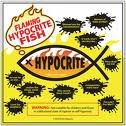In On the Waterfront, the the consequenses of speaking up are clear. Betray the mob and die for it. The mob bosses, Johnny Friendly and Charlie the Gent, enforce this standard for what they see to be their own protection. If they don't keep squealers under their thumbs, then their whole livlihood thats been built up on the docks will be crushed and they'll be jailed. Terry thinks along these lines as well, or at least on the other side of it. When Charlie is murdered, the connection between "talking" and "dying" is only reaffirmed in his mind which is why instead of going straight to the cops, he goes to take his revenge before he himself dies.
I think that there are a few differences between a whistle blower and a traitor. Mainly, what their motivations are and the consequences of not taking action. If someone is fueled by selfish desire, such as money or revenge or anything else personal, then they would be considered a traitor by exposing whatever illicit activity we're talking about. If the act is carried out with the intent to contribute to the greater good, then it would be considered noble in nature. Also, if the costs to society are so great that by not taking the initiative to stop whatever it is, then I believe that you are morally obligated to blow the proverbial whistle and by extent, failing to do so would be a traitorous act to the community affected. If either of these two conditions that I mentioned are fulfilled, I think that one should be considered a whistle blower and be benefiting society as a whole.
skip to main |
skip to sidebar

This page is possibly the most awesomely cool EE10 blog ever made by any single person named Vivian Ha.
Link and Ike Caramelldansen


6 comments:
I agree that one should take into account the costs to society when they decide whether or not to tell the truth. Even if someone benefited personally from telling the truth, they would be a traitor for not telling the truth in a situation where society would greatly benefit from the truth.
From what I saw in the film, Terry got his revenge by going to the police. The pastor of the film even said that Terry wouldn't get much revenge outright, that the only way to hurt them was the courts. He got back at the mob by exposing their activity on the docks. I do agree, though, that you have to weight an action to determine if a person is a traitor or not.
I agree with everything you said in your first paragraph. However, what about the other characters? You only discussed one side of the matter of tattler versus freedom fighter. And I definitely agree with your second paragraph! I even wrote about the same thing - motivations. They are a strong point to consider when differing between a whistle blower and traitor.
It seems that the deciding factor between whistle blower and traitor are the motivations behind one's actions, but I think this is hard to judge. You can never be sure of what someones motivations are because they might not even notice everyone. Also, it depends on what side you are on, if you're the one being tattled on, it won't matter what the person's motivations are.
I like your clear definitions of what is a whistle blower, and what is a traitor. I understand them well but, opinions on what would benefit the greater good vary, that's why this question is so hard. Some people think that the greater good needs something different than other people.
I agree with what I believe you are saying, the mob essentially knows that what they are doing is "wrong" but they continue to do it because it benefits them. They survive by maintaining control over their workers which they do by instilling fear in them. Yet there is a point where it is worth the risk to stop the horrible things they are doing. I would also add that often a traitor is only acting to stop or reveal something that only negatively affects himself not the community as a whole.
Post a Comment